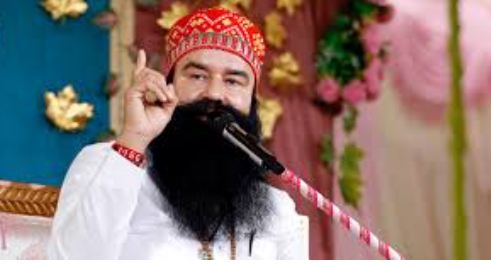
Gurmeet Ram Rahim Singh, a controversial figure and convicted rapist, has been granted parole just days before the Haryana assembly elections, raising eyebrows and igniting a political firestorm. Singh, who leads the Dera Sacha Sauda sect, was sentenced to 20 years in prison in 2017 for sexually assaulting two of his female followers. His previous parole releases have often coincided with political events, leading critics to question the motivations behind his freedom and its implications for the upcoming elections.
The timing of this latest parole has drawn significant attention, particularly given Singh’s influence among his followers, which is believed to number in the millions. His sect has a substantial following in Haryana and Punjab, making his support potentially pivotal in the elections. Political analysts suggest that the release might be a strategic move by parties looking to secure votes from his loyal base.
Since his imprisonment, Singh has been granted parole several times, often leading to accusations that these releases are politically motivated. The Haryana government, which oversees the parole process, has faced scrutiny for its decisions, with opposition parties accusing it of favoring Singh to gain electoral advantages. This situation has sparked a broader debate about the intersection of crime, politics, and power in India, particularly regarding influential leaders who have committed serious offenses.
Supporters of Singh argue that he has been a force for good, citing his philanthropic activities and social work through his organization. They believe his influence has been beneficial to many in the community, particularly in promoting education and health initiatives. However, critics point to his criminal record and question the morality of granting parole to someone convicted of such serious crimes, especially in a politically charged environment.
The response from the public has been mixed. Some express outrage over the perceived leniency shown to Singh, while others are more focused on the upcoming elections and how his release could sway voter sentiment. Social media has been ablaze with discussions, hashtags, and calls for justice, reflecting the deep divisions in public opinion surrounding Singh’s parole.
As the elections approach, the political ramifications of Singh’s release will unfold. Candidates from various parties are likely to address the issue in their campaigns, with some positioning themselves as champions of justice and others attempting to leverage Singh’s influence for electoral gain. The situation has also prompted calls for reforms in the parole system, with advocates arguing that more stringent measures should be in place to prevent the release of convicted criminals, especially those with a history of violent offenses.
In conclusion, Gurmeet Ram Rahim Singh’s recent parole is not just a personal matter but a politically charged event that highlights the complex relationship between crime and politics in India. As Haryana prepares for its elections, the implications of this decision will be closely watched, with potential consequences for candidates, political parties, and the electorate as a whole. The debate surrounding Singh’s influence and the ethics of his release will likely continue to resonate long after the polls close, underscoring the challenges of balancing justice with political power.
4o mini
